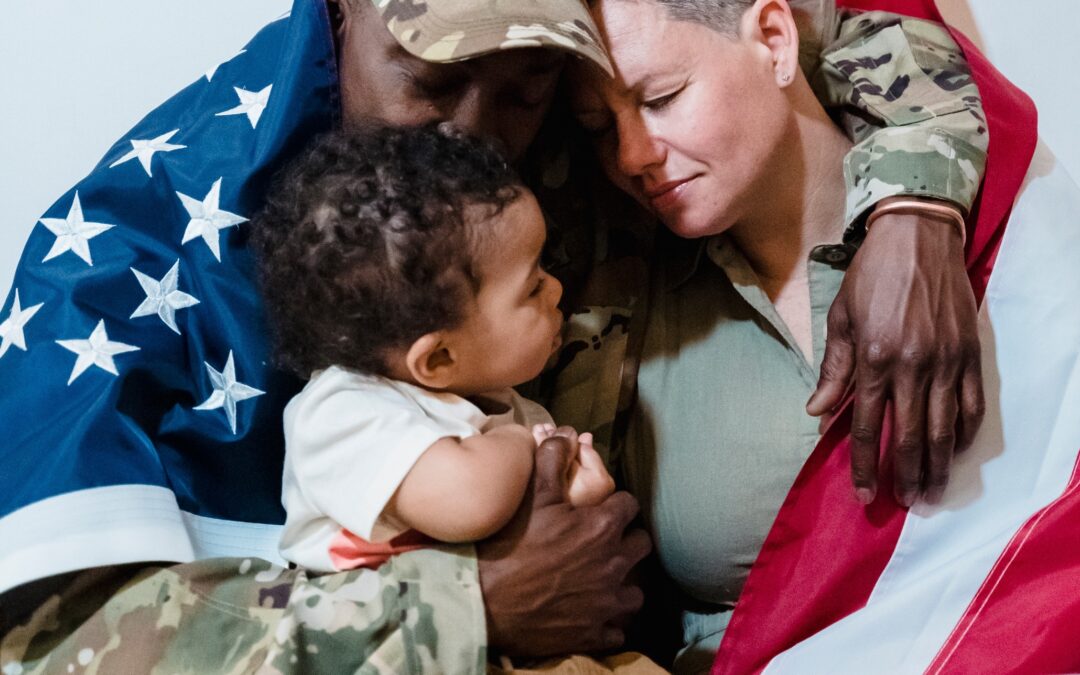For a military family struggling with addiction, it can seem like a never-ending cycle of pain and struggle as they watch their loved ones battle this disease. Addiction is an isolating experience that can damage relationships, increase financial hardship, and cause significant stress for everyone involved.
However, there is a way to break the cycle and turn pain into resilience by seeking support through professional help from organizations such as West Coast Recovery Centers. We offer personalized treatment plans tailored to fit the needs of all family members affected by addiction, regardless of whether or not they are currently struggling.
In this blog post, we’ll discuss how support from our team at West Coast Recovery Centers can provide guidance and peace of mind, which could be key tools on your journey to recovery together as one unit again.
Understanding the Unique Struggles of a Military Family Dealing With Addiction
Military families face unique struggles, and when addiction enters the picture, those challenges become even more complex. Deployments, frequent moves, and the stressful environment of military life can contribute to and exacerbate addiction issues. Additionally, military culture often discourages seeking help for mental health or substance abuse concerns, further complicating the process of recovery.
At the same time, families of service members dealing with addiction must navigate the military bureaucracy, deal with stigma, and manage their own emotions and well-being. Luckily, with support, education, and resources, military families can overcome these complexities and find a path to healing and recovery.
The Impact of PTSD on Addiction in a Military Family
Military families face unique challenges, particularly when it comes to coping with addiction and mental health issues. PTSD, or post-traumatic stress disorder, can have a profound impact on those who have served in the military, as well as their loved ones. For military families, in particular, the toll of PTSD can be especially heavy.
Spouses and children often bear the brunt of the symptoms, such as flashbacks, nightmares, and mood swings. This can lead to a greater risk of addiction, as individuals may turn to drugs or alcohol in an attempt to cope. Understanding the impact of PTSD on addiction in military families is crucial for providing effective support and treatment to those who need it most.
How to Create an Open Dialogue About Seeking Treatment
As a military family, finding ways to communicate openly and honestly is crucial to maintaining a strong bond. When seeking treatment for mental health concerns, broaching the topic with loved ones may feel overwhelming. However, creating an open dialogue about the importance of seeking help can help alleviate some of that stress. Approach the conversation with empathy and understanding, acknowledging that seeking treatment can be scary but ultimately beneficial.
Encourage your loved ones to share their concerns and offer support in finding resources or treatment options. Remember, seeking help is a sign of strength, and as a military family, coming together and supporting one another during difficult times is essential. Here at West Coast Recovery Centers, our dedicated team is ready to support you and your family in any way possible.
Benefits of Professional Treatment Services for Veteran and Military Families
The sacrifices made by members of the military and their families are significant and long-lasting. While it’s often easy to focus on the service member’s needs, it’s essential to remember that their entire family unit is affected by their service as well. Fortunately, professional treatment services are available that are tailored specifically to the unique needs of military families. These services can offer counseling, support, and resources to help military families better cope with the demands of military life.
Whether dealing with long periods of separation or transitioning back to civilian life, professional treatment services can be incredibly beneficial for military families. With the proper support, military families can thrive and find ways to strengthen their relationships and build resilience in the face of adversity.
Building a Support System for a Military Family During Recovery
Military families go through unique challenges, especially during recovery periods. Having a strong support system is essential to ensure the well-being of the family. Building a support network can be challenging, given the nature of military life, but it’s not impossible. The first step is to reach out to your military community and connect with families who have been through similar experiences. You could also consider participating in support groups or counseling sessions offered by military installations.
Apart from this, seek out non-military support systems such as local community organizations or even online support groups. Remember, building a support system takes time and effort, but it can make a significant difference in the recovery process of military families.
Self-Care Tips That Help Facilitate Healing After Struggling With Addiction
For military families, struggling with addiction can be an especially tough challenge, as relocating frequently and deployment can add extra stressors to an already difficult situation. Self-care can be a vital tool in facilitating healing after addiction. Finding ways to prioritize self-care can help build a strong foundation for sustained sobriety.
This might mean incorporating regular exercise, prioritizing healthy meals, or even just taking some time to pursue a beloved hobby. Whatever the form of self-care, incorporating habits that support healthy and positive habits can help manage difficult times and pave the way to a more fulfilling and sober life.
Our military families face unique challenges when it comes to battling addiction and managing the impact of post-traumatic stress disorder (PTSD). Creating an open dialogue and seeking out professional treatment services can be key components in helping loved ones recover. As a result of these strategies, the individual and their family can benefit from more positive self-care practices providing them with more strength and resilience for recovery. Through the right tools and guidance, those impacted by addiction can receive help on their journey. If you or someone you know is currently struggling with addiction, reach out to West Coast Recovery Centers for compassionate care. Call us today at (760) 492-6509.




